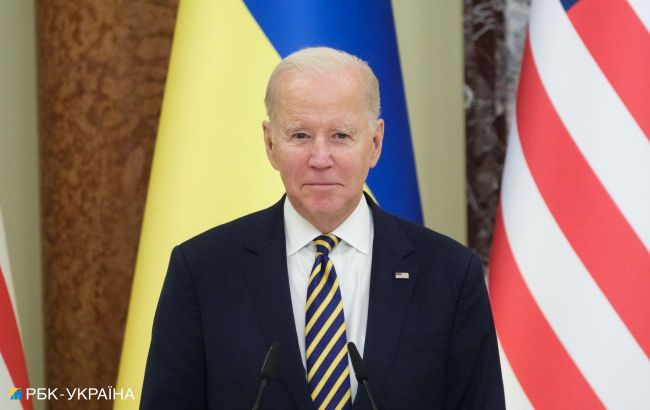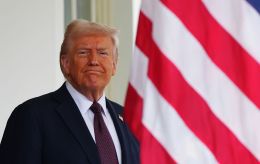Biden extends Russia cyberattack sanctions for another year
 President of the United States Joe Biden (Photo: Vitalii Nosach, RBC-Ukraine)
President of the United States Joe Biden (Photo: Vitalii Nosach, RBC-Ukraine)
President Joe Biden has decided to extend the sanctions for cyberattacks on the United States for another year. The list of restrictions includes Russia, reports the White House page.
The Biden administration states that significant harmful activity in cyberspace continues to pose an unusual and extraordinary threat to the national security, foreign policy, and economy of the United States.
"For this reason, the national emergency declared on April 1, 2015, must continue in effect beyond April 1, 2024," the statement said.
Therefore, Biden decided to extend for one year the state of emergency regime introduced under Executive Order 13694.
Also, the White House page notes that the measures introduced not only by Executive Order 13694 but also by a similar document numbered 13757 will remain in effect.
What it's about
In 2015, former President Barack Obama allowed the US Treasury to impose sanctions against individuals engaged in cyberattacks.
Within a year, the document was amended, and sanctions could already be imposed against individuals involved in cyber activity posing a significant threat to national security, foreign policy, economic prosperity, or financial stability of the United States, as well as aimed at undermining US electoral processes or institutions.
At that time, the following entities were subject to restrictions:
- FSB of Russia;
- Main Intelligence Directorate of the General Staff of the RF;
- Special Technology Center LLC from St. Petersburg;
- Autonomous Noncommercial Organization Professional Association of Designers of Data Processing Systems;
- organization Tsor Security from Moscow.
And in 2017, these restrictions were enshrined in the Countering America's Adversaries Through Sanctions Act.
Sanctions against Russia for cyber operations
In January, it was reported that Australia had imposed sanctions on a Russian national for his role in a cyberattack on the insurance company Medibank. Hackers carried out one of the largest data thefts affecting around 10 million clients.
And in February, the United States imposed sanctions on two Russians involved in extortion as part of the LockBit cyber group.

